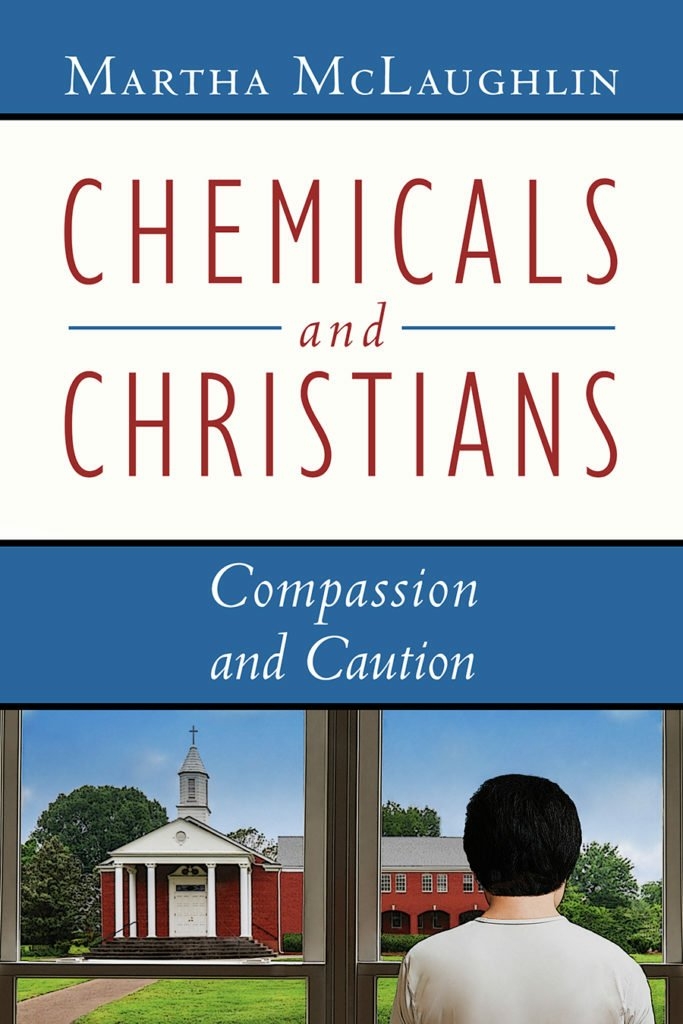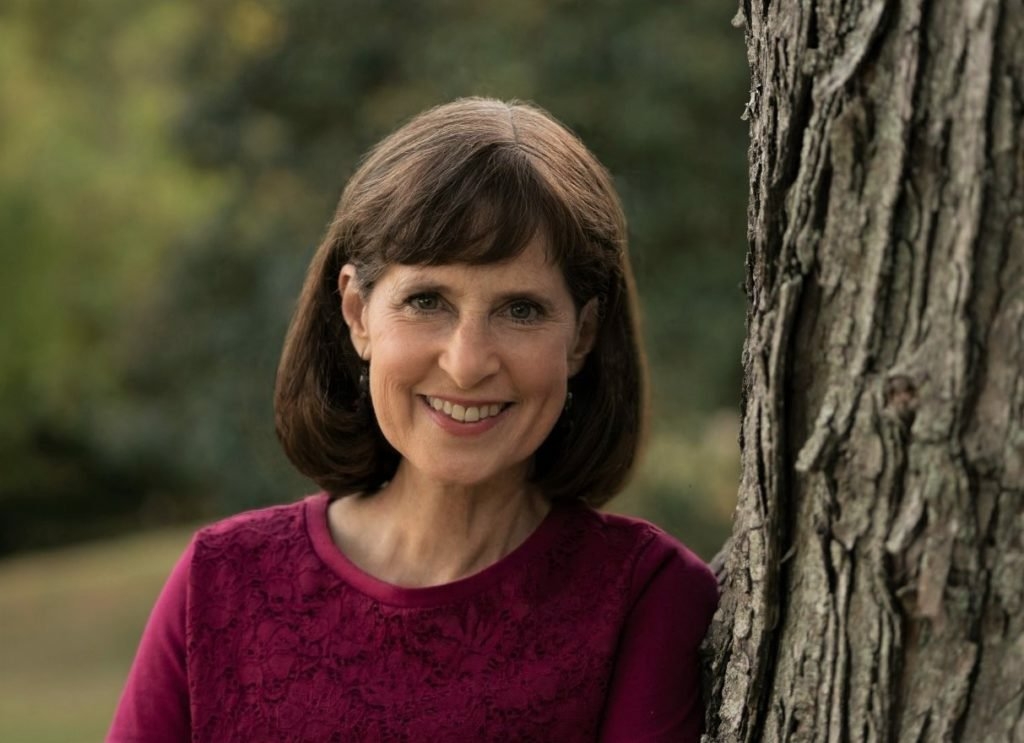About the Book
[Insert Book Picture Here]

Book: Chemicals and Christians
Author: Martha McLaughlin
Genre: Non-fiction
Release Date: January 31, 2020
Martha McLaughlin and her husband served as international missionaries for 10 years, ministering in a variety of ways, including helping to identify unreached people groups. When her physical breakdown forced them to return to the USA, she feared it was the end of her missionary journey. But instead, God told her, “Just because you’re set apart doesn’t mean you’re set aside.”
Today Martha feels called to try to help a different kind of unreached people group: the isolated sufferers of toxic illness, a growing but largely invisible population. Yet, like the canaries once used in coal mines to detect poisonous gases, they are a wake-up call to the effects of the thousands of chemicals used daily in our modern society.
Expertly researched and written, Chemicals and Christians: Compassion and Caution is loaded with valuable information and biblical counsel for hope and avoiding harm in our increasingly chemicalized environment. It provides steps for biblical health management, offers practical resources, and shows Christians ways to help.
Click here to get your copy!
About the Author

AUTHOR INTERVIEW
Q: Why did you decide to pursue a career as an author?
A: I was a missionary in South America when I got very ill and was forced to return to the States. When I returned, I needed to earn some money from home (essentially from bed) and the options seemed rather limited at the time. I have degrees in Education and English, so a job writing Continuing Education Unit courses was a natural fit. I wrote test questions and later began writing online articles.
I never had any intention of writing a book, and when I first felt that’s what God was asking me to do, it seemed like an overwhelming prospect. Eventually, though, I began to see it as an extension of the missionary call I first felt as a teenager.
Q: When you are writing, what does your daily schedule look like?
A: I try to write when I’m feeling most alert and have the most brain power, which tends to be early in the morning. I often write early in the day, take a break, and pick up again in the afternoon. The tricky thing for me is that I have a long list of things I want to do first thing in the morning (prayer, exercise, sauna, etc.) and there are only so many early morning hours to go around. I’ve finally given myself permission to write when I’m not feeling my best, knowing I can edit and improve things later, when better mental functioning returns.
Q: When writing non-fiction, what kind of research do you normally have to do?
A: For many years I wrote articles on addiction and behavioral health and was often self-conscious and paranoid about the research I needed to do. Usually a formally worded online search through reputable scholarly journals would give me the information I was looking for, but occasionally I found a need to google phrases like “What’s the cheapest way to get high?” which I was always afraid would put me on someone’s radar screen. Once I was on an attorney’s site looking for information on an addiction-related legal question and a chat box popped up asking me if drug use had gotten me in trouble with the law. I left the page pretty quickly.
When it was time to write Chemicals and Christians I really didn’t need to do a lot of research, because I had been studying the topic for personal reasons for years. It was mostly a matter of just organizing the information I already had.
Q: How do you choose the topic for your books?
A: I’ve only written one book, and I would say that the topic chose me more than I chose it. I became very ill and in the process of trying to regain my health I learned how potentially dangerous the products we use every day can be and how unregulated and untested they are. I also learned about (and joined) an entire underground world of people shut out of society because of their reactions to commonly used chemicals. It began to really sadden me that people were continuing to get very ill because no one was warning them to avoid problematic products, or at least warning them loudly and insistently enough that they got the message. I was also deeply grieved at the lack of accommodations for the chemically sensitive, especially in the church setting.
The common advice is to find a market niche and write for it. I didn’t do that. I wrote a book because I had something to say. I felt a bit like the prophet Jeremiah did, when he talked about trying to hold back the message God had given him to share: “It’s like a fire in my bones! I am worn out trying to hold it in! I can’t do it!” (Jeremiah 20:9b, NLT)
A: When writing non-fiction, how do you keep the books from becoming “textbook”renditions to making the stories come alive so people are interested in them?
A: I spent a lot of time thinking about that issue when writing Chemicals and Christians. My goal was to make the book interesting and engaging, of course, but I also really wanted readers to be able to see themselves in the stories I shared. I wanted them to take the warnings seriously and to avoid the tendency we all have to think “it couldn’t happen to me.” I did my best to break up fact-heavy sections with personal accounts from chemically ill people, and I made sure to include quotes from men and women, old and young, in the hope that all readers could relate to at least one personal account in the book.
More from Martha
When people talk about taking the road less traveled, the implication is generally that there was a choice involved. I’ve made choices at times to wander down lonely trails, such as deciding to become a missionary and move to a country in crisis. Water and electricity were rationed, grocery store shelves were empty, a cholera epidemic raged, the president disbanded congress, inflation hit 10,000 percent, and active terrorist bombing shook our house on a regular basis. Most mission organizations and all non-essential embassy personnel left the country and those of us who chose to stay found ourselves on a very sparsely populated path.
At other times in my life I’ve ended up on roads less traveled not by any decision of my own, but by circumstances beyond my control. During my decade of missionary service, my health steadily declined and I was forced to return to the States to look for help. It wasn’t easy to find, but I eventually learned that Lyme disease, mold exposure, and the chemical onslaughts of a third-world megacity had overwhelmed my detoxification system. I discovered I could climb out of bed and function if I avoided anything that would make my full metaphorical barrel of toxins overflow. I also discovered that was much easier to do in theory than in practice because of the overabundance of untested and unregulated chemicals in common, everyday products.
My health condition introduced me to a world of chemically sensitive people, all of us living isolated lives, unable to safely access most medical care, shopping, schools, and churches. I’d been deeply saddened at having to leave the mission field and wondered why God had removed my ability to serve, but not the sense of call I felt. I gradually began to understand that I still had a calling, but to a different population. I felt God asking me to speak for people who are generally unseen and unheard. I want the Christian church to not only see us, but to find ways to open their doors and provide the spiritual nourishment and connection we so desperately need.
As I was discovering the needs of the chemically sensitive population, I was also learning how quickly it’s growing and how easy it is for anyone to join. I began to understand the connection between everyday chemical exposures and common mental and physical health conditions and symptoms. So the other side of my call is to warn healthy people, or those who haven’t yet connected their chemical exposures and health complaints, that it’s wise to be careful – that being a good steward of the physical body doesn’t just mean getting eating, sleeping, exercise, and relaxation right, but that avoiding toxins is a huge piece of the puzzle.
I’m not someone who always had a burning desire to write a book. I wrote it because I had something to say and a conviction that God wanted me to say it. I want healthy people to stay that way, and I want chemically ill people to be seen, heard, and reached with God’s love. My deep desire is for Chemicals and Christians to help save people from unnecessary suffering.
Blog Stops
Inklings and notions, June 22
Debbie’s Dusty Deliberations, June 23
Vicky Sluiter, June 24 (Author Interview)
Truth and Grace Homeschool Academy, June 25
Texas Book-aholic, June 26
My Devotional Thoughts, June 27 (Author Interview)
For Him and My Family, June 28
Splashes of Joy, June 29
For the Love of Literature, June 30 (Author Interview)
deb’s Book Review, July 1
Lots of Helpers, July 2
Artistic Nobody, July 3 (Author Interview)
Mary Hake, July 3
Godly Book Reviews, July 4
Library Lady’s Kid Lit, July 5
Giveaway

3 Comments
-
Thanks for your interest in this topic and my book. The more we know the more we can do to keep ourselves and others safe. That’s the goal!
-
Your book sounds like a great read and thank you for sharing it with us.
-
-
I found this book quite interesting, and very helpful.


